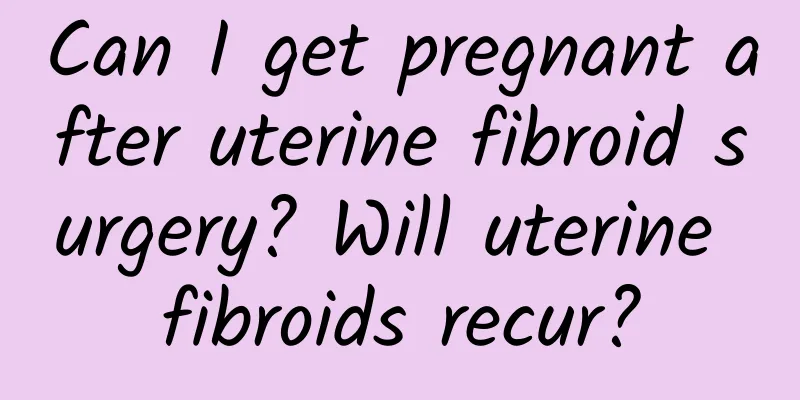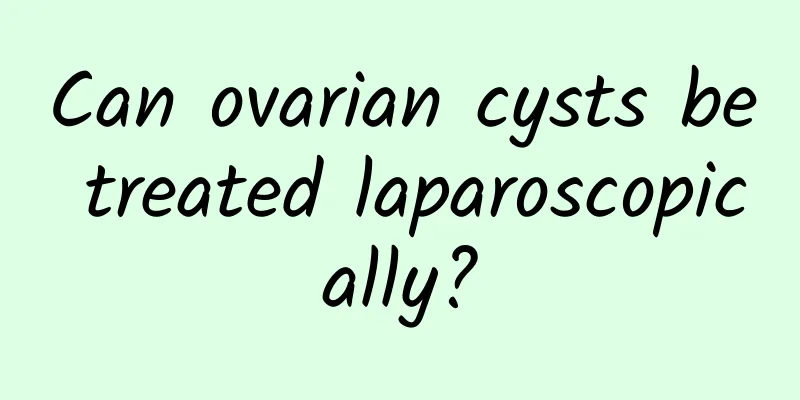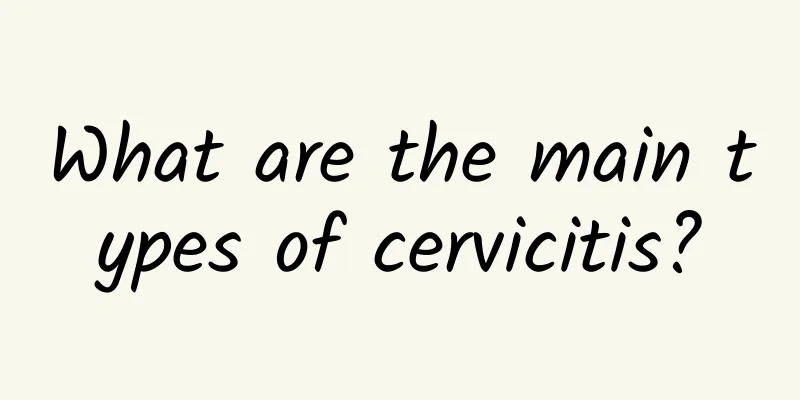Can I get pregnant after uterine fibroid surgery? Will uterine fibroids recur?

|
Uterine fibroids are a benign uterine tumor that is very common in women of childbearing age. The location of the growth of the fibroids, such as compression of the fallopian tubes, will affect the movement of sperm and eggs, leading to infertility. Once pregnant, the fibroids will grow rapidly with the growth of the uterus, especially after the second trimester of pregnancy, "degeneration", producing abdominal pain, fever and other symptoms. Uterine fibroids can sometimes easily lead to miscarriage and premature birth. Generally speaking, women with uterine fibroids can get pregnant with a diameter of less than 4 cm. However, before pregnancy, the uterine fibroids grow more than 4 cm in diameter, and the chances of pregnancy, degeneration, miscarriage, and premature birth increase; or the fibroids are less than 4 cm in diameter, but the growth location is not good, such as the uterine cavity, cervix or compression of the fallopian tubes affect infertility. It is best to perform surgery to remove the fibroids before pregnancy. All women of childbearing age with uterine fibroids must be examined by a gynecologist before deciding whether to get pregnant. For women who already have uterine fibroids, it is not impossible for them to recur. The recurrence rate is relatively low for patients with a single or small number of fibroids; if the number of fibroids is large, the recurrence rate is relatively high. Therefore, when the recurrence rate of fibroids is low, women who want to get pregnant are better off planning their childbirth. Some experts point out that "as for the issue of whether patients with uterine fibroids can have children, many people are concerned about it. It is best for patients to seize the time to get pregnant within 3 years. The recurrence rate is low and the success rate is naturally high." The special significance of the uterus to women determines that patients often have many concerns during surgery. But in fact, this is unnecessary. The current surgical plan can better consider the patient's feelings: remove the fibroids and retain the uterus, which is suitable for young, infertile patients; if the fibroids are too large and too many, the uterus has completed its "historical mission" of childbirth, and you can cut it off. In fact, hysterectomy will not affect the function of the female endocrine system and the harmony of sexual life. This is because even if the uterus is removed, the ovaries are still retained. The uterus is just an implanted reproductive organ, and the ovaries dominate the female endocrine. |
<<: What should I do if my menstrual flow is small after uterine fibroid surgery?
>>: What to eat after uterine fibroid surgery? Dietary conditioning methods for uterine fibroids
Recommend
How to prevent cervical warts
How to avoid cervical warts? Cervical warts are a...
What should you pay attention to in your diet during menopause?
Amenorrhea is a common symptom of gynecological d...
How to treat mild uterine fibroids?
How to treat mild uterine fibroids? Mild uterine ...
Is there any medicine that can delay menstruation for two days?
Is there any medicine that can delay menstruation...
Do eggs help you lose weight? The ideal nutritional library should be eaten like this
Do you think eggs are cute and hateful? Want the ...
Experts talk about some nursing principles for women with dysmenorrhea
Dysmenorrhea is also a painful thing for women, b...
Avoid sweets when losing weight? Homemade 2 low-calorie desserts to satisfy your cravings
★Chia seeds and fresh fruit drink When you are cr...
Learn how to remedy obesity in 3 minutes after the long holiday
[Key points]: I gained weight after the New Year&...
Nursing methods of traditional Chinese medicine for miscarriage
In our real life, there are many women who become...
What are the symptoms of functional uterine bleeding and how to treat it
Symptoms of functional uterine bleeding include i...
What tests should be done for painless abortion?
What kind of examinations are required for painle...
2 ways to get rid of the fat belly of the child and learn to surrender like a robot
According to a survey conducted by the Children&#...
Eat avocados to control blood sugar, lose weight, and treat neck pain ~ Nutritionist: No more than 1/2 avocado a day
In the colorful world of weight loss, what foods ...
If you love to drink hand-shaken drinks, you will develop fatty liver! Famous weight loss doctor: Don’t touch these three landmines, there is a magic formula to replace fructose
In the hot summer, it is common to see people hol...
What ointment is good for vulvar itching
The occurrence of vulvar itching bothers every pa...









